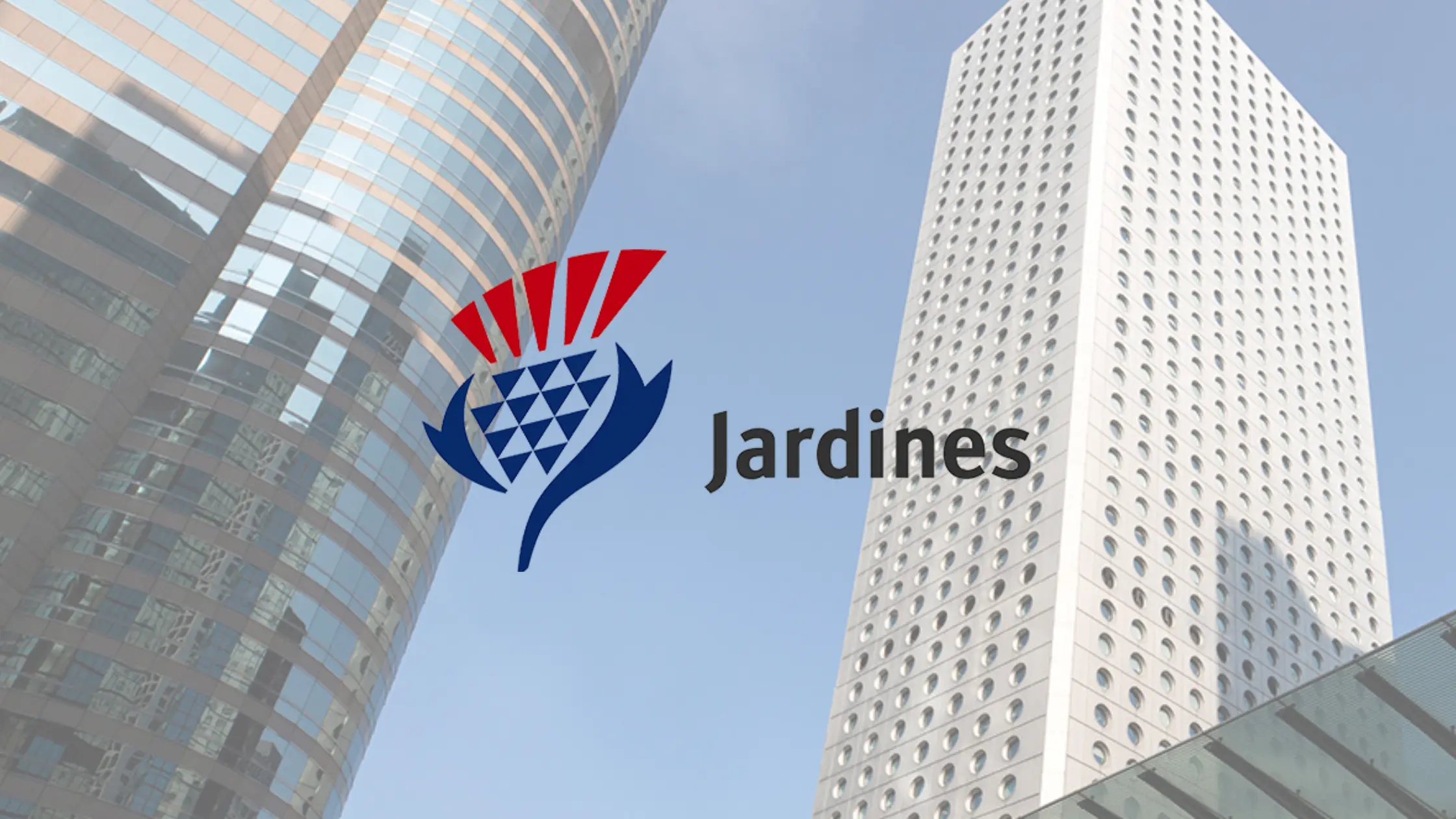Rising Interest Rates: The Impact on S-REITs
June 22, 2022

Over the last decade, Singapore Real Estate Investment Trusts (S-REITs) have emerged as a popular and efficient way for investors to tap into the growth of the property sector.
Among some of the key characteristics that have supported interest in S-REITs are:
- Strong long-term returns
- High rental reversion rate
- Ample liquidity
- High dividend yield
- Potential for diversification
- Hedging against inflation
However, there is a concern over the impact of rising interest rates on S-REITs, especially with the faster-than-anticipated rate hikes embarked on by the US Federal Reserve (Fed).
The common perception is that a rising interest rate environment is negative for S-REITs. This is mainly due to three factors:
- Rising bond yields will drive rotation into the bond market from S-REITs
- Rising interest rates will increase financing costs for REITs and will erode margins
- Interest rates will affect capitalisation rates and discount rates for property valuations
If we look at the chart below, we can see that bond yields in Singapore have started to climb.
The chart below shows that Singapore’s 10-year government bond yield hovers at around 3.2%.
About a year ago, it was only at around the 1.5% level. This will render S-REITs less attractive given the safer investment in the bond market.
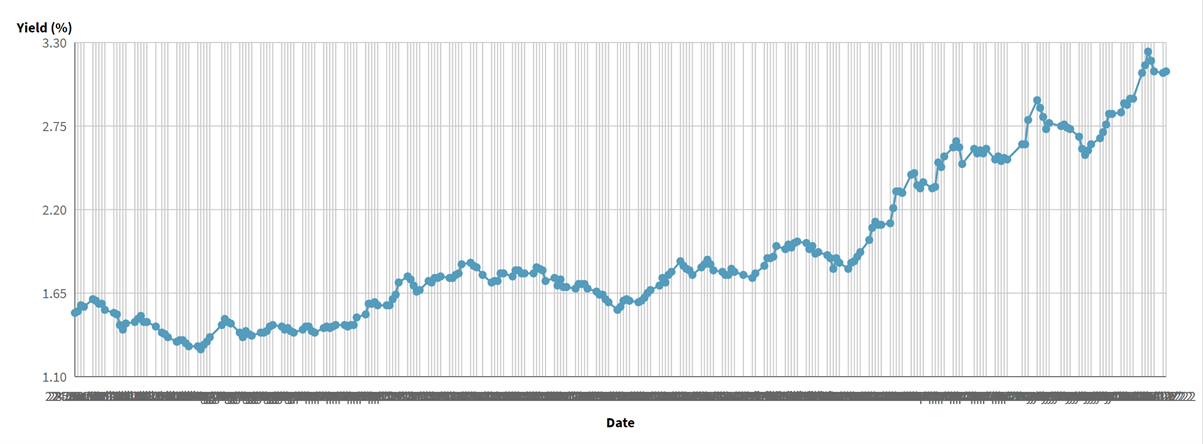 Source: Monetary Authority of Singapore (MAS)
Source: Monetary Authority of Singapore (MAS)
The other factor is the impact on its borrowing costs. With rising interest rates, this will lead to higher rates upon refinancing and higher floating rates.
REITs that have paid attention to capital management, and ensured that debt expiries are staggered with a higher portion of fixed-rate debt, will weather the rising interest rate environment better than REITs that have a higher portion of floating rate debt.
In terms of valuations, rising interest rate will also negatively impact property valuations for REITs.
Despite these challenges, long-term investors should take advantage of market weakness to accumulate these dividend plays.
Here are five reasons why long-term investors should continue to invest in S-REITs.
1. Average dividend yield of 6.4% remains attractive
While it is true that S-REITs’ dividend yields become less attractive with rising bond yields, the average dividend yield of the 43 REITs and property trusts listed here stood at 6.4% as at 31 May 2022.
That’s still very attractive in comparison to other investment alternatives.
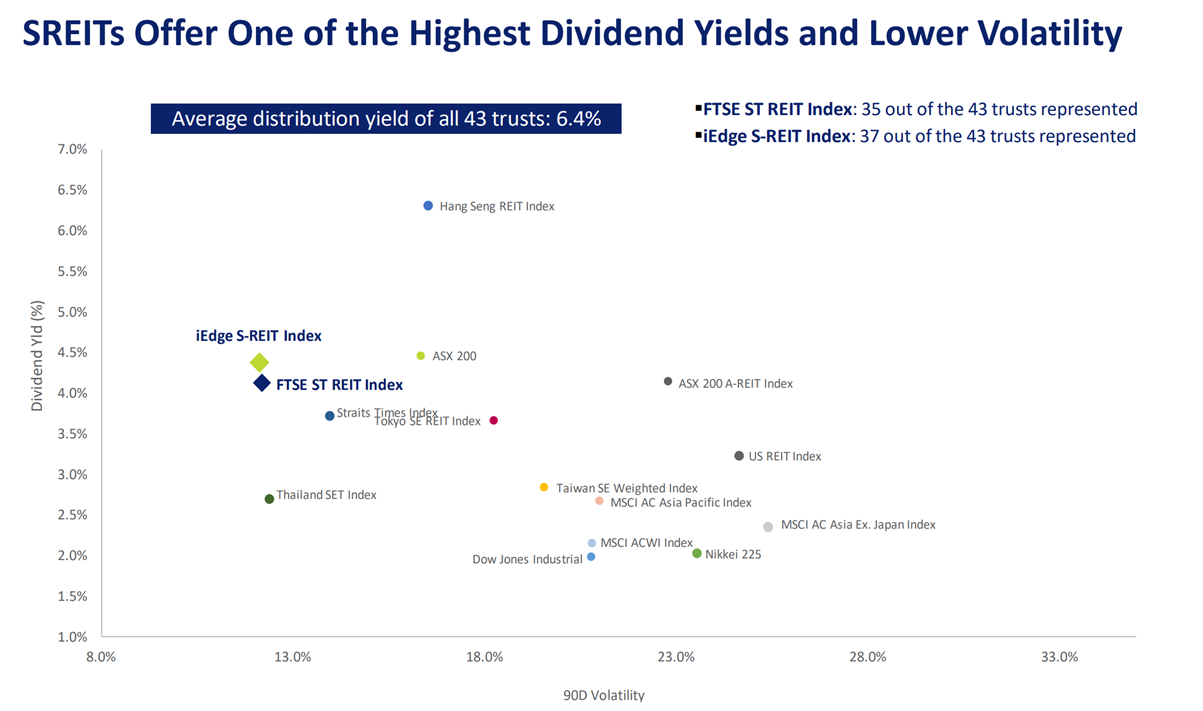 Source: Bloomberg, SGX data as of 31 May 2022
Source: Bloomberg, SGX data as of 31 May 2022
Unlike some other asset classes, S-REITs also have lower volatility, which is vital for your investment portfolio during this market environment.
2. FTSE ST REIT Index 10-Year Total Return of 131.3%
The FTSE ST REIT Index 10-year total return of 131.3% outperformed the equity benchmark index, the Straits Times Index (STI).
 Source: Bloomberg, SGX data as of 31 May 2022
Source: Bloomberg, SGX data as of 31 May 2022
What this means is that investors, historically, have been rewarded for sticking with S-REITs despite market volatility.
3. Strong debt profile with average gearing ratio of 36.9%
While S-REITs have a regulated gearing ratio limit of 50%, the average gearing ratio of the 43 S-REITs counters is only at 36.9%.
This means that the debt profile of S-REITs is at a healthy level.
4. S-REITs and Property Trusts have a 10-Year CAGR of 13%
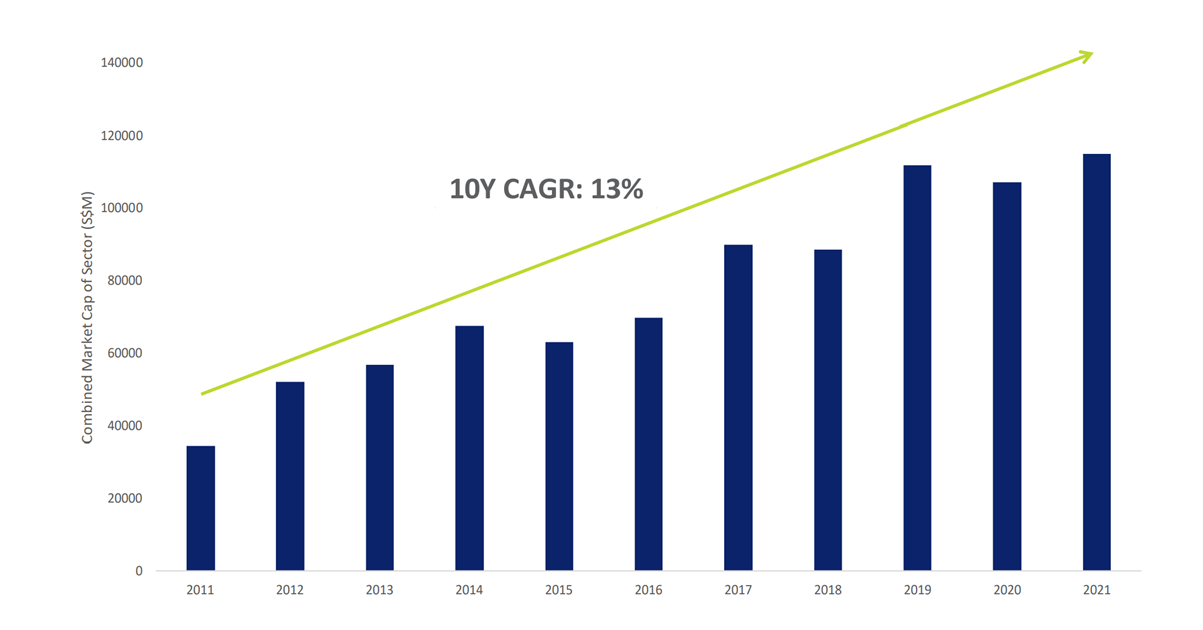 Source: Bloomberg, SGX data as of end-2021
Source: Bloomberg, SGX data as of end-2021
S-REITs have a strong historical track record with its market capitalisation growing by a 10-year compound annual growth rate (CAGR) of 10.3%.
Currently, the 43 REITs have a combined market capitalisation of S$111 billion, representing around 12% of the total market cap of all listed stocks in Singapore.
5. Highest yields versus other asset classes
While it is easy to panic and rotate into the bond market for its safety, S-REITs still have the highest yields as compared to other asset classes.
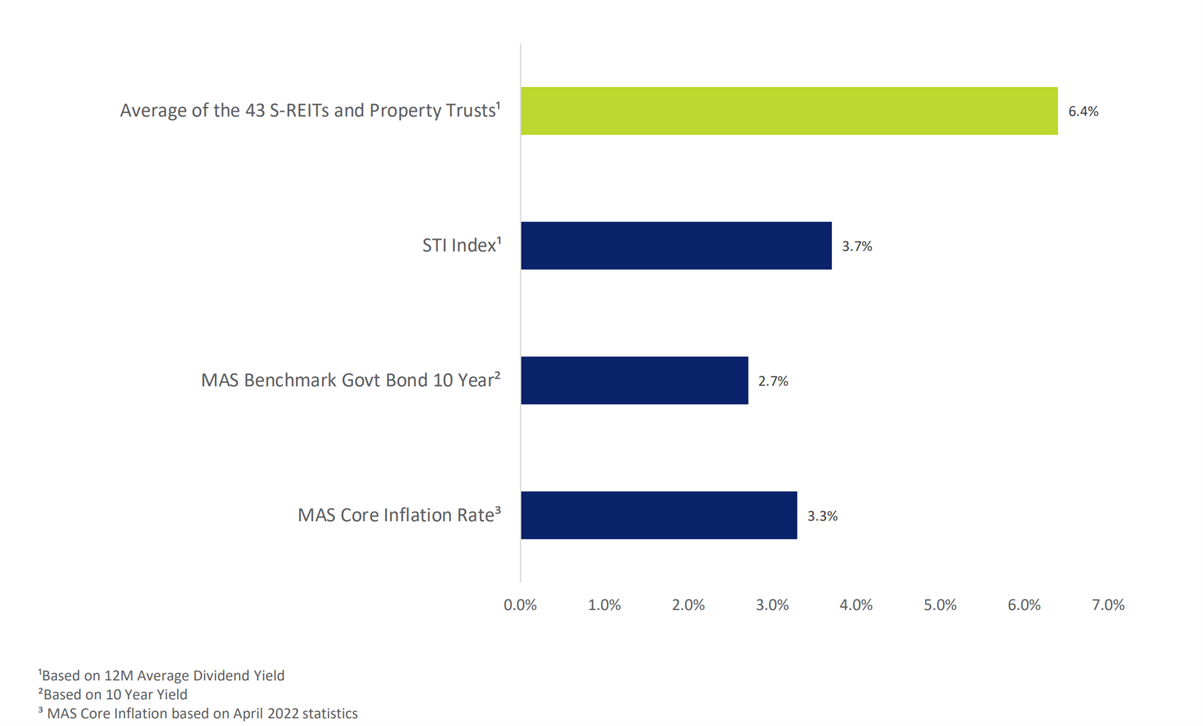 Source: Bloomberg, SGX data as of 31 May 2022
Source: Bloomberg, SGX data as of 31 May 2022
S-REITs continue to be an important part of a diversified portfolio
While the rising interest rate environment will hurt S-REITs, they may still potentially outperform the broader Singapore market.
The relatively high yields found in S-REITs will also play a part in helping to hedge against the rising inflation and interest rate environment.
Given the historical track record and recovery of Singapore’s economy in the reopening theme, long-term investors can reap the potential benefits of sticking with S-REITs – despite the rising interest rate environment.
Disclaimer: ProsperUs Investment Coach Billy Toh doesn’t own shares of any companies mentioned.

Billy Toh
Billy is deeply committed to making investment accessible and understandable to everyone, a principle that drives his engagement with the capital markets and his long-term investment strategies. He is currently the Head of Content & Investment Lead for Prosperus and a SGX Academy Trainer. His extensive experience spans roles as an economist at RHB Investment Bank, focusing on the Thailand and Philippines markets, and as a financial journalist at The Edge Malaysia. Additionally, his background includes valuable time spent in an asset management firm. Outside of finance, Billy enjoys meaningful conversations over coffee, keeps fit as a fitness enthusiast, and has a keen interest in technology.


